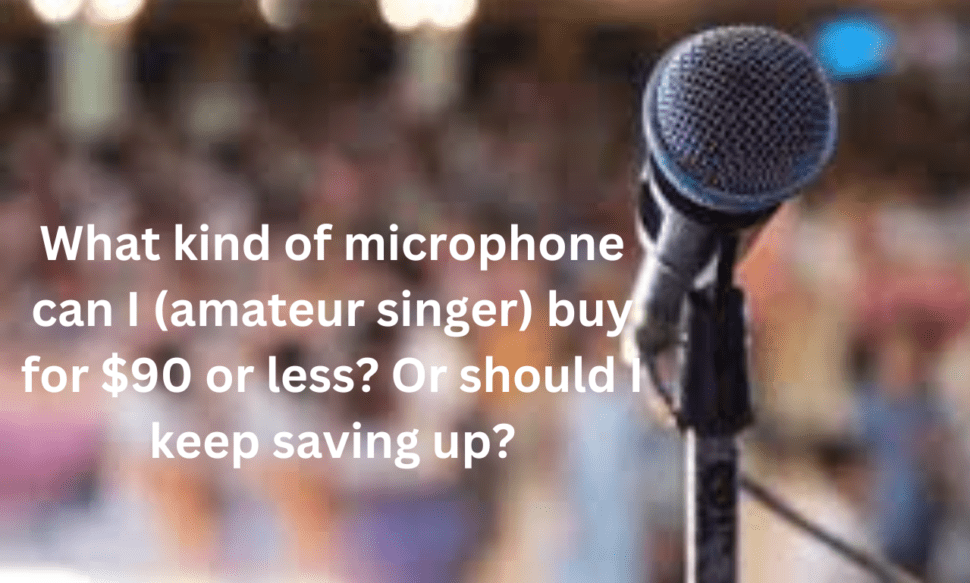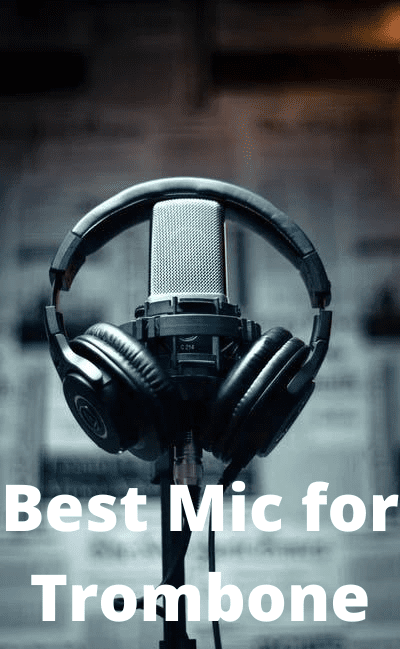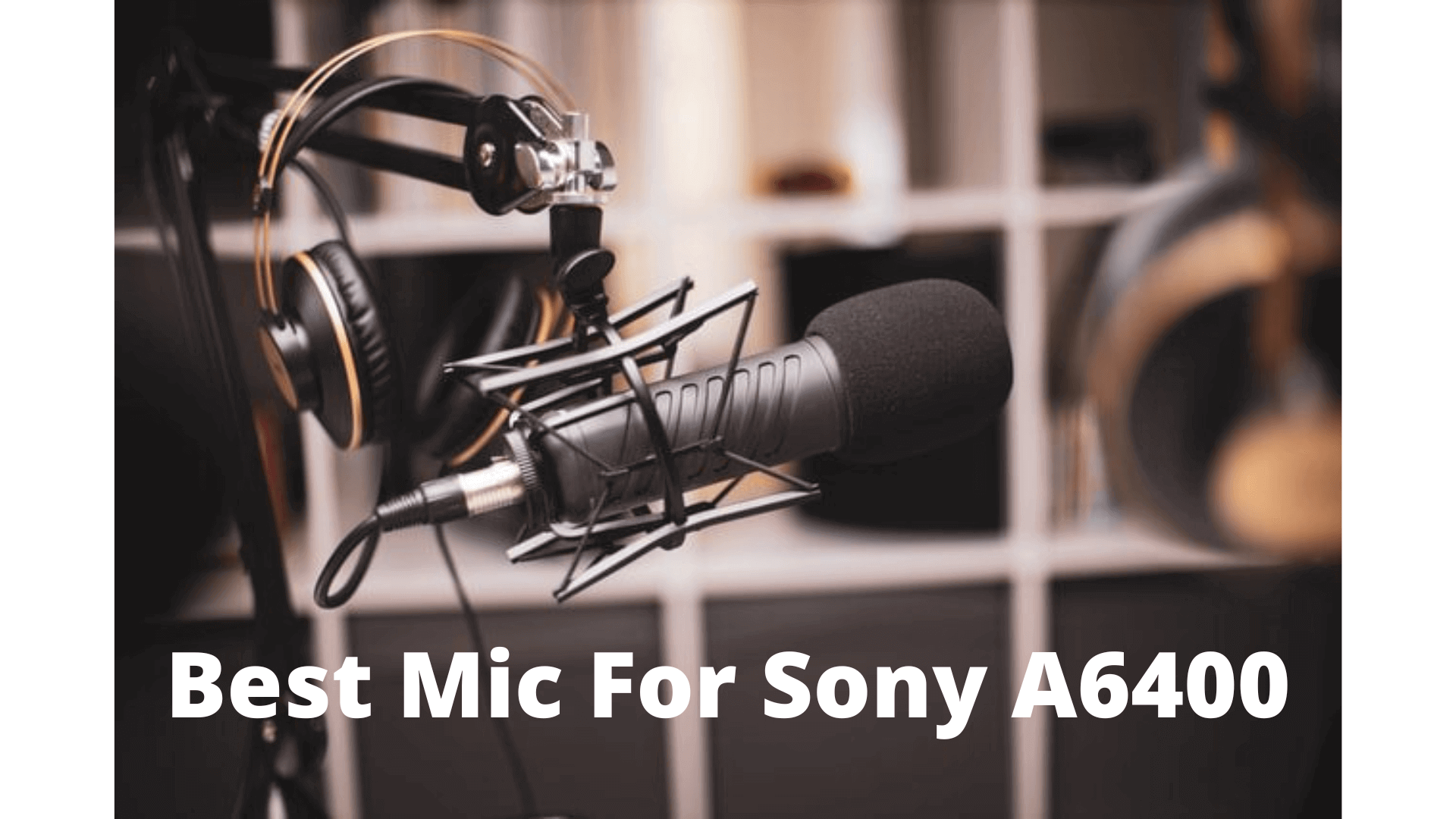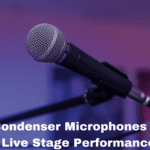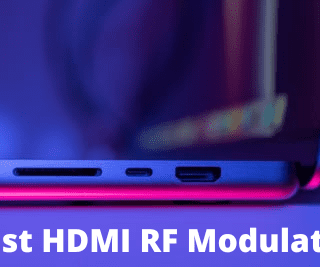What kind of microphone can I (amateur singer) buy for $90 or less Or should I keep saving up? Oh! You might spend $91.80 on the Shure Unidyne 545, which is new and available through Musicians Friend. Of course, you would need to find an additional $1.80. It is an older model of the SM57, identical to the SM58 but with a flatter head basket that improves its ability to approach musical instruments. and also electric guitar speakers.
Foam under the SM58’s larger, rounded head basket helps reduce breath-related pops and hisses and possibly prevents you from going too close to the diaphragm, which would increase pops and hisses. We had all sung through an SM57 at some point, and everything worked fine. What kind of microphone can I (amateur singer) buy for $90 or less? Or should I keep saving up? In addition, people frequently utilized this particular Shure microphone design for vocals in the 1960s, which had a separate detachable windscreen. I have a Shure Unisphere microphone, which is Unidyne’s round-head basket variant, and I like it.
Low-cost Options
What kind of microphone can I (amateur singer) buy for $90 or less Or should I keep saving up? A cheap microphone is a wonderful place to start if you’re a novice or need clarification on how serious you want to get about home recording. I used every piece of equipment on this list when I started recording at home. Until you’re ready to commit to something pricey, it’s always a good idea to get something reasonably priced.
Remmended Article: Best Mic For Sony A6400 Complete Buying Guide
Considerations when Purchasing a Microphone
We should review the fundamentals now that we have selected the best microphones for singing at home. What kind of microphone can I (amateur singer) buy for $90 or less? Or should I keep saving up? You should take into account the following things before making your purchase:
Types of Mics
We can only proceed further if we discuss the various microphone kinds. If you’re serious about home recording, please learn everything about the many types of equipment. What kind of microphone can I (amateur singer) buy for $90 or less? Or should I keep saving up?
Dynamic
The most common type of microphone is a dynamic one. They’re probably somebody you’ve seen a lot of as a kid! Typically, these microphones translate electrical impulses into sound-like miniature loudspeakers. A magnet and wire coil are always inside a dynamic microphone’s structure, helping to generate the electric current.
Dynamic microphones are a great choice if you’re all about boosting the sound; they perform best with powerful electric guitars or bass drums. Dynamic microphones can also withstand significant wear and tear and often last long due to their straightforward design and functioning.
Condenser
A condenser mic provides more sophistication than the basic dynamic mic. Condenser microphones are ideal for recording delicate sounds due to their sensitivity and increased responsiveness.
This microphone’s design comprises two capacitor plates powered by an external source. Remember that using a condenser microphone involves work because an XLR cord is required. But if you want amazing sound quality, it’s well worth it.
Ribbon
These microphones are built similarly to dynamic microphones, but they have a thin ribbon instead of a diaphragm. Ribbon microphones are excellent for use in the studio while recording vocals or instruments. Due to its fragility and structure can also be a little pricey, but if you’re a serious artist, it’s worth it. You must experience detailed sound at least once in your life.
Frequency Response
This is another aspect that you must consider before making a microphone purchase. As the name suggests, this element determines the frequency range that your microphone can take up. You’re better off with anything that offers a mid- or high-range as this tutorial is about the greatest singing equipment. What kind of microphone can I (amateur singer) buy for $90 or less? Or should I keep saving up? For recording guitars or voices, high-frequency microphones are fantastic. Low-frequency microphones, on the other hand, can be useful for recording bass. Choose a solution that will meet your demands and specifications.
Conclusion
What kind of microphone can I (amateur singer) buy for $90 or less? Or should I keep saving up? So, you’ve liked reading my thorough guide and selected the right microphone for your needs. You’ll eventually discover how purchasing the proper tools will unquestionably aid your quest for professional-caliber home recording. Please leave questions and comments regarding your preferred microphones in the below space. Good fortune!
Related articles:
5 Best Mic for Trombone Buying Guide

